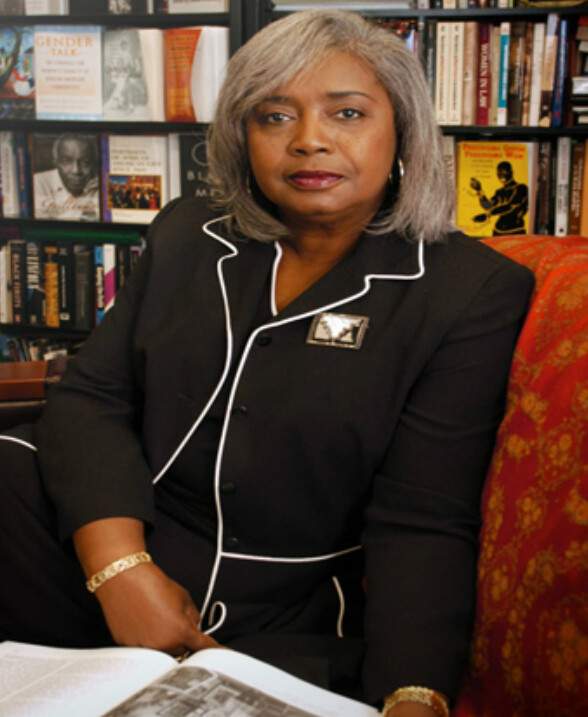
Darlene Clark Hine, a pioneering scholar in the field of African-American women’s history, will focus on race and health care when she delivers the Carroll R. Pauley Memorial Lecture in History at the University of Nebraska-Lincoln on Oct. 8.
Hine is Trustees Professor of African American Studies and History at Northwestern University. She is a 2013 recipient of the National Humanities Medal, presented by President Obama on behalf of the National Endowment for the Humanities. Her lecture, “Rights of Citizenship: Historical and Contemporary Perspectives on Race and Health Care,” begins at 7 p.m. at the Great Plains Art Museum, 1155 Q St.
Hosted by the Department of History, the Pauley Lecture is intended to bring the latest historical scholarship to UNL faculty, students and the public. Co-sponsors of the event are the Institute for Ethnic Studies, the Department of English, African-American and African studies and the Sheldon Museum of Art.
Hine will participate in several activities on campus designed to support interdisciplinary research and teaching in the Institute for Ethnic Studies and the Department of History, as well as to guide and inspire students of the humanities.
She will meet with graduate students to discuss “Reckoning with History” – how historians, humanists and social scientists come to terms in their scholarship with historic injustice and inequities.
She is to discuss her views on the state of the history profession during an Oct. 9 meeting with the Department of History Alumni Advisory Council, a group of supporters and donors. Also on Oct. 9, she is to participate in discussions as a guest in Women and Gender in African Societies, a 400-level course taught by Professor Dawne Curry, associate professor of history and ethnic studies.
Hine, a past president of the Organization of American Historians and the Southern Historical Association, is a leading historian of the African-American experience who helped found the field of black women’s history. She has been one of its most prolific scholars, authoring books such as “A Shining Thread of Hope: The History of Black Women in America,” “Speak Truth to Power: Black Professional Class in United States History” and “African Americans: A Concise History.”
Hine began studying history as an undergraduate at Roosevelt University in Chicago because she wanted to make sense of the civil rights and Black Power movements then reshaping the country and her own identity, according to the biography accompanying her National Humanities Medal.
She holds a doctorate from Kent State University. She was one of a handful of black women in the historical profession during the late 1970s. While at Purdue University, she was the only tenured black woman in Indiana. She found her calling as a historian in 1980, when the president of the Indianapolis chapter of the National Council of Negro Women insisted that she write a history of black women in Indiana. Her subsequent work helped change the conversation about what constitutes history and who is worthy of historical recognitions.
“Through prolific scholarship and leadership, Dr. Hine has examined race, class and gender and shown how the struggles and successes of African-American women shaped the nation we share today,” Hines’ White House citation said.







